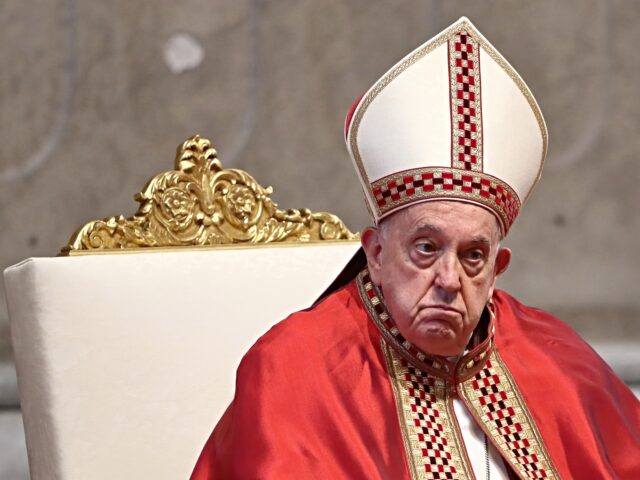ROME — Europe is experiencing a crisis evidenced by a “wave of populism” that threatens European universality, Pope Francis warned Saturday.
In a message to participants in the European Alpbach Forum, an Austrian nonprofit foundation advocating a strong and democratic Europe, the pontiff said that Europe is “experiencing a time of crisis,” a time “in which various populist movements are enjoying great popularity.”
In Europe, “as a result of this ‘wave’ of populism, some ideals have vanished and some principles, with regard to behavior towards the weaker members of society, have been sidelined,” he added.
The pope was no doubt referring to the many conservative populist movements enjoying increased favor in European nations such as Italy, France, Poland, Sweden, Germany, the Netherlands, and Hungary.
Francis has never attempted to disguise his contempt for right-leaning populism, and in 2019 famously said that citizens of European nations should put the good of Europe before that of their own countries.
How many refugees are living inside your walls bruh https://t.co/3oaqgApZHF
— Breitbart News (@BreitbartNews) February 22, 2017
“The thinking must be ‘Europe first, then each one of us,’” the pope said in a wide-ranging interview with the Italian daily La Stampa. “‘Each one of us’ is not secondary, it is important, but Europe counts more.”
“Never forget that ‘the whole is greater than the parts.’ Globalization, unity, should not be conceived as a sphere, but as a polyhedron: each people retains its identity in unity with others,” he said.
At the time, Italy’s interior minister, Matteo Salvini, had adopted the motto “Italians first,” and the pope went so far as to compare Salvini’s speeches to those of Adolph Hitler.
“Sovereignism” — a movement spearheaded in Italy by Mr. Salvini — reveals “an attitude toward isolation,” the pope said. “I am concerned because we hear speeches that resemble those of Hitler in 1934. ‘Us first, We…We…’ These are frightening thoughts.”
In his message Saturday, the pope said that Christians should strive, with renewed motivation, to “contribute the wealth of Catholic social doctrine, with its claim to universality.”
“Even the European Union, ever since its founding, has universalistic features, and it is to be hoped that it does not lose them,” he added.
“It follows that European societies are called to find ways and means to reduce the polarization within them, and to remain open towards the surrounding world,” he stated.

COMMENTS
Please let us know if you're having issues with commenting.